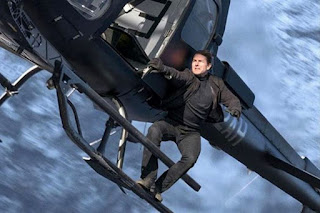Movie series: "Deadpool 2," "Solo," "Avengers: Infinity War"
"Hey, does my being in the foreground hint how this movie should have been?"
It's not enough to call some movies sequels, or prequels, when they collectively form an enormous narrative thread, a novel in many parts. Now, those parts may be out of sequence (recalling in a way Julio Cortazar's novel "Hopscotch"). They may also revise the previous narrative (as, for example, the "Star Trek" reboots have done in recycling old characters but reframing the story from the previous series and film; or the past-changing events in the "X-Men" films). But they still demand that the audience be aware of everything that has gone before; I was rewatching "Avengers: Age of Ultron" over the weekend and realized I had forgotten how it brought in the Infinity Stones and Thanos, which of course became central to "Avengers: Infinity War."
But, as much as DC and Marvel and "Star Wars" and others ask us to keep track of a larger narrative, the individual movies should still stand on their own -- should be fresh in some way, should make us come out of the theater perfectly satisfied whether or not we ever see another film in the sequence.
And that is why all three of these recent serial chapters are to varying degrees disappointments. "Infinity War" is the most entertaining of the three, yet in its deliberate (and not unexpected) ending, it recalls one critic's assessment of "The Empire Strikes Back" as a very long trailer for the next movie. Sure, "Empire" is often referred to as the best of the three original "Star Wars" movies, but how much is that based on knowing that it is not the end of the story? Would it be considered even better if "Star Wars" ended there -- with the sort of gloom that only intermittently is allowed in chapter-laden movies? (One reason I like "Rogue One" is that it understands that, to fit in the "Star Wars" chronology, major characters have to die.)
Similarly, if the Marvel saga ended with "Infinity War," would that qualify as a bold statement, an admission that the good guys do not always win -- instead of it being the set-up for the next movie? But, as a set-up, as startling as its ending is, "Infinity Wars" leaves us longing; it does not stand on its own.
An even more problematic demonstration of the serialized-movies problem is "Solo," nominally a prequel to "A New Hope," but really more of a patchwork of bits about characters we are already know very, very well. The major exception is Lando Calrissian (Donald Glover), whose sketchy presence in the previous movies is finally expanded -- and delightfully so, as Glover offers the Billy Dee Williams cool of the previous Lando as well as a closer look at Lando's world and savvy. Bring me a Lando movie with Glover, and I'm at the theater.
Unfortunately, the "Solo" story is not much, and Alden Ehrenreich lacks not only the charisma of Harrison Ford (back when he had it) and the cynicism that made Han Solo a compelling counterpart to Luke's idealism. The backstory for Solo, thin though it is, suggests a darker character than Ehrenreich provides; he's too freakin' childish. (Imagine the role recast with Ansel Elgort from "Baby Driver," and you can see how someone can be boyishly handsome, appealing and still sharp-edged.) I sat through most of "Solo" waiting for it to be more than a greatest-hits recap of "Star Wars" characters and, aside from some action sequences (although here, too, the movie trafficked in redundancy) -- and I never got that.
Much has been made of the box-office misfortune of "Solo," with reasons offered such as its coming too soon after "The Last Jedi" (a much better movie) and competition. But a bigger reason is that "Solo" is just not that good. Where such movies often tempt audiences into repeated viewings (if only to micro-study the details and complain about them), "Solo" did not justify even one run.
What, then, of "Deadpool 2"? Well, Josh Brolin must be happy, since he's part of this as well as "Infinity War," making him a two-billion-dollar baby at the global box office.
"2" is certainly a smart movie in knowing what the audience wants -- in the wisecracking, the fourth-wall-breaking, the allusions to other films and characters from Marvel and DC, and -- in case you've forgotten, in the first film as well as this one -- genuine feeling. There was a point late in "Deadpool 2" where it made me mist up some, not the sort of reaction I was ready for after all the mayhem and commentary. But it made me admire the nerve of the filmmakers, who were no more afraid to go there than they were to charge along aggressive adventures.
Still, it's "Deadpool 2."
We've seen and heard most of these tricks before.
The first movie refreshed the agonized-superhero form and seemed to promise more wonders to come. The second did not fail its promise as completely as, say, "Kick-Ass 2" did after "Kick-Ass." Still, it was at heart just a reworking of what had gone before -- and, I fear, an indication of what will come as Deadpool is integrated into other cinematic tales.
Only when you're as fixated on these movies as I am, there's still that urge to see how the story ends, no matter how many movies it takes. But for those less addicted, it should be easy to take a pass on "Solo," or any other film that cannot be enjoyed all by itself.



Comments
Post a Comment